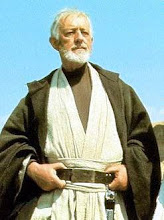"22 And we know that the people who were in the land of Jerusalem were a righteous people; for they kept the statutes and judgments of the Lord, and all his commandments, according to the law of Moses; wherefore, we know that they are a righteous people; and our father hath judged them, and hath led us away because we would hearken unto his words; yea, and our brother is like unto him. And after this manner of language did my brethren murmur and complain against us."
Essentially, the we must consider the spirituality of Laman and Lemuel in contrast with the spirituality of Lehi and all the other prophets, like Jeremiah, who were called to preach repentance to the people of Jerusalem about 600 B.C. Nephi's version of Lehi's account is found in 1 Nephi 1. Here are some pertinent excerpts:
"4 For it came to pass in the commencement of the first year of the reign of Zedekiah, king of Judah, (my father, Lehi, having dwelt at Jerusalem in all his days); and in that same year there came many prophets, prophesying unto the people that they must, repent or the great city Jerusalem must be destroyed...
"13 And he read, saying: Wo, wo, unto Jerusalem, for I have seen thine abominations! Yea, and many things did my father read concerning Jerusalem—that it should be destroyed, and the inhabitants thereof; many should perish by the sword, and many should be carried away captive into Babylon...
"18 Therefore, I would that ye should know, that after the Lord had shown so many marvelous things unto my father, Lehi, yea, concerning the destruction of Jerusalem, behold he went forth among the people, and began to prophesy and to declare unto them concerning the things which he had both seen and heard.
"19 And it came to pass that the Jews did mock him because of the things which he testified of them; for he truly testified of their wickedness and their abominations; and he testified that the things which he saw and heard, and also the things which he read in the book, manifested plainly of the coming of a Messiah, and also the redemption of the world.
"20 And when the Jews heard these things they were angry with him; yea, even as with the prophets of old, whom they had cast out, and stoned, and slain; and they also sought his life, that they might take it away. But behold, I, Nephi, will show unto you that the tender mercies of the Lord are over all those whom he hath chosen, because of their faith, to make them mighty even unto the power of deliverance."
And so, the people of Jerusalem were wicked at this time. The Bible has insight on this, too, from Jeremiah 37-38, for starters. Here is verses 1-3 of chapter 37:
"1 And king Zedekiah the son of Josiah reigned instead of Coniah the son of Jehoiakim, whom Nebuchadrezzar king of Babylon made king in the land of Judah.
"2 But neither he [Zedekiah?], nor his servants [who are really bad in chapter 37-38], nor the people of the land [the Jews for which Laman, Lemuel, Nephi, and Lehi talked about], did hearken unto the words of the Lord, which he spake by the prophet Jeremiah [the prophet who consulted with the Lord, for His will for the kings of Judah and surrounding nations].
"3 And Zedekiah the king sent Jehucal the son of Shelemiah and Zephaniah the son of Maaseiah the priest to the prophet Jeremiah, saying, Pray now unto the Lord our God for us."
This might be a tricky point, because as I read over Jeremiah 37-38, it seemed that Zedekiah was interested in the will of the Lord for his decisions as king, even though it seems that he didn't heed them, as stated in verse 2. There were several times Zedekiah called for Jeremiah to come to him in secret from where he might have been, which was prison for these chapters. It was the servants that put him there all the time.
In all it is an interesting study, but time does not merit a deeper look. What do you think of all this? Do you know the stories of Jeremiah?
